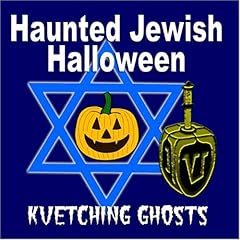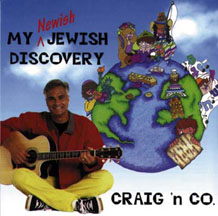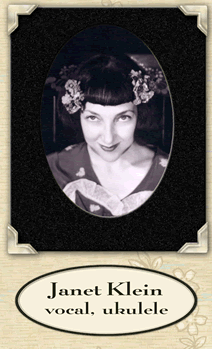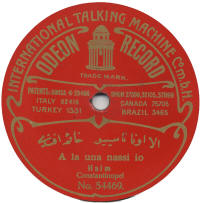
Towards the end of summer I caught a concert by the local klezmer and roots music band,
The Red Sea Pedestrians. I had a few questions for Ian about the Pedestrians unique sound but the Pedestrians and band leader Ian Gorman have been busy playing a string of well received local gigs. Gorman finally had a few minutes this week to chat with me about the Pedestrians views on nostalgia and culture.
Teruah: I've joked on my blog a couple of times that there isn't a metro area in America left that doesn't have a klezmer band. While you help prove my point, proudly representing Kalamzoo Michigan, the Red Sea Pedestrians aren't a classic "We love Dave Tarras" klezmer band. While the klezmer is a highlight, you draw on a lot of other traditional American musics. I could see you playing happily at a traditional Jazz festival next to a Dixieland band, for example. Your compositions make it make sense, but it is a bit unusual. Where did the idea for the Red Sea Pedestrians come from? How did you get your musicians to buy into it?
Gorman: Well, The Red Sea Pedestrians have never really set out to be a traditional Klezmer band. We all have very diverse tastes in music, and playing stuff that's enjoyable or interesting to us, regardless of genre, is always our main goal. Of course, Klezmer music was the basis for the band, but not in an exclusive way. The band was formed back in late-2005 when some friends of ours, The
Corn Fed Girls, had a Christmas show coming up. A group of us had talked for a while about wanting to play some Klezmer music, and we thought it would be great to throw a set together and open for CFG, which we did. Originally the band consisted of myself, Rachel Flangian, Ira Cohen, Jay Gavan, and Nathan Durham (That lineup is on our CD "A Lesson in Cartography"). Rachel, Ira and I had played together in various projects, and Jay and Nathan had a group together.
Although we consider Klezmer music our recurring theme, as I said, we're always open to different music styles. Lately, with the addition of Mike Shimmin on percussion, and Megan Macleoud on violin, we feel like we have many more stylistic doors open to us. Mike is well versed in many different genres of world music, and Megan is an accomplished celtic violinist. The idea of incorporating music from all over the world interests us, and hopefully we'll continue to branch out. One of the things that we all love about this band is that there are no rules when it comes to genre - Many bands feel like they have to stay true to a sound or scene, and we're not really interested in limiting ourselves in that way.
Teruah: One of the editors of Heeb magazine recently made a crack at the Jewish music scene saying that we were "looking backward for mythical authenticity." I wonder how you'd respond to that. First, where do you see the Pedestrians in terms of a scene (or scenes). Do you consider yourself part of a Jewish music scene? Are you part of other scenes? Secondly, at some level nostalgia seems to be a big part of the Pedestrians approach both musically and lyrically. Do you think you're looking backward?
Gorman: I think of us more as part of the Michigan roots music scene than the klezmer scene, since we don't play traditional klezmer, and there's not a whole lot of bands around here (Although there are a few). To me, the folk music tradition, whether it be American folk or world folk, means both looking backwards AND carrying that music forwards. Folk music isn't just about looking at the past - true folk music is a product of the "folks" playing it, in the current sense, and should reflect that. It's about continuing a tradition - not just celebrating the past. However, we all have a strong respect for the history of the music we're playing, and we enjoy the nostalgia, as you put it, inherent in much of the music we play.
Teruah: During your show I had this strange image of a future Red Sea Pedestrians video. In the video the band is playing hard on one of your songs (I think I had the image during my kids favorite, More, More, More) and the video freezes. For the rest of the song, the video images start deconstructing the musical influences of the band. I saw the drummer turn into a rock drummer and then a traditional jazz drummer and then a military marching (fife and drum) drummer. The clarinet went jazz and then klezmer and then Russian army marching band (where clarinet was introduced to klezmer). The upright bass went jazz and then chamber ensemble. The banjo went Folk musician and then old timey musician then Ireland and England. You get the idea. You've put together a lot of different sounds with a lot of pedigree's. And it clearly works. What's the glue that holds it together? What's the common ground?
Gorman: The glue that holds it together is the people in the band, I believe. We're all good friends, and were long before we started playing music together. As I said, we all enjoy the "melting pot" quality to our sound, and we like our performances to be sort of a "variety show", if you will. Since all six of us write original music, that happens naturally a lot of the time. And, of course, a lot of these instruments (violin, guitar, mandolin, etc) have been featured prominently in many different music styles. Why not incorporate all of that in "our sound"?
Another thing to mention is that we're all very influenced by the Michigan roots music scene. Groups like
Steppin In It,
Seth Bernard and
Daisy May, and the entire
Earthworks Music scene, is amazing in it's creativity, political activism and prolific nature. The doors are open for genre-defying creation, and the whole scene is very supportive of others. We feel like Michigan is a great place to be for a roots music act, and we're proud to be a part of it!
Teruah: I'm glad. I love the Michigan scene. I had great fun taking my family to see your show this summer and expect that I'll spend a lot of next summer treking around Michigan and listening to roots music. Including the Pedestrians, of course. Ok, enough of looking backward. Where are the Red Sea Pedestrians going musically and career-wise? What are your goals for the band?
Gorman: Many of us are professional musicians, and have full-time bands or commitments. herefore, RSP has always been sort of a "side project" for most of us. We try to play only about 1 show a month or so, and always try to keep the pace of the band manageable for everyone's crazy schedules. So far, that seems to have worked out well. Creatively, I hope we'll always grow s a band, but "career-wise", we're not sure where we're going with it. We hope to play more and more in the Michigan Roots Music Festival scene, and of course around our home town of alamazoo.
Teruah: Any upcoming gigs we should know about?
Gorman: We're excited about our next Bell's Brewery show on November 15, as well as our show at the Kalamazoo Public Library on December 10 and our performance at the Noreast'r Festival next June!
You can hear the Red Sea Pedestrians and follow their performance schedule on their
MySpace page.
 I've mentioned before my theory about Google, right? It's not actually a search engine. Somehow, through some Twilight Zone, it takes in our queries and alters the world to have some interesting results for us. Thoughtful of it.
I've mentioned before my theory about Google, right? It's not actually a search engine. Somehow, through some Twilight Zone, it takes in our queries and alters the world to have some interesting results for us. Thoughtful of it.




















